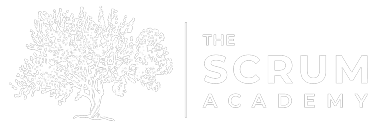
Exciting New Agile Team Training Available

On November 12th, I will be facilitating a first of its kind training for Agile Team members. Through the use of simulation, I will help the participants reawaken dormant skills such as how to communicate with your peers, give (and receive) feedback, conflict resolution, decision making and other key soft skills each Team member needs to function in a fast-moving Agile Team. At the completion of this one-day course, I hope to give participants a better appreciation of what skills are needed to communicate effectively, solve problems collaboratively, identify common communication patterns (and anti-patterns) and the application in the participant’s workplace. Also, this is going to be a lot of fun.
In my work with Agile teams, I have observed that the greatest improvements of Team come when teaching the Team members soft skills. These soft skills are more valuable because they allow Team members to connect with each other as individuals and foster true ownership of the work. Too often people come to work on auto-pilot, go through the motions of their career and go home profoundly dissatisfied. In my opinion, much of this can be traced back to a poor work environment which encourages isolation from the people we work with and the work we do.
With the Agile community’s strong emphasis on “individuals and interactions”, you would think as a community we would have some trainings that help people improve their soft skills, yet that is not the case. Over the past couple of years, we have seen an explosion of training provided for leaders of Agile teams – the Certified ScrumMaster program is an excellent example – or we teach Team members technical skills – the classic two-day TDD class. These are all really good things to teach people and they are useful to know. They form a solid foundation for technical excellence and help create and sustain the Team environment. However, they don’t teach people how to work together as a Team.
The simulation, named SIMSOC*, will begin the conversation of “How are we going to work together? How are we going to make this time we spend together more valuable?”. SIMSOC (pronounced sim-sock) can be thought of as a live-action version of “The Sims” combined with the cutthroat drama of “Survivor”. The goal of each session is to remain “alive” and further your personal goals. Some patterns of behavior will be more successful than others and it will be up to the participants to discover the the right strategy to remain alive by the end of the day. No two strategies will be the same and there are no pre-planned outcomes. Apart from a few basic “natural laws’, the participants are free to do as they choose, which creates fertile opportunities for cooperation and conflict. By the end of the day, I hope to arm the participants with an alert mind, some valuable experiences on what types of communication and collaboration strategies which work and curiosity about the next steps they need to take to build and grow that awesome team that makes you excited to get up and go to work each day.
* SIMSOC was created by noted sociologist Dr. William Gamson to examine the role of leadership organization, power and social change and has been in use for over 40 years in both the business and educational world.





